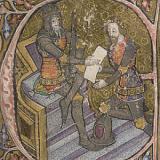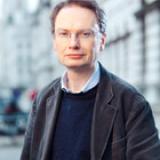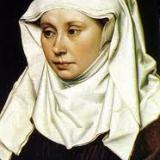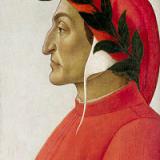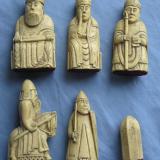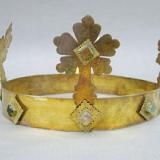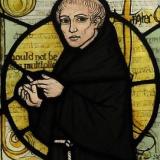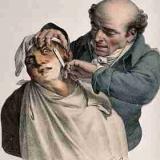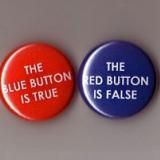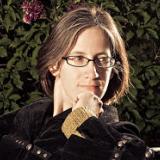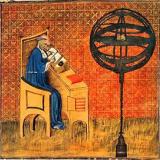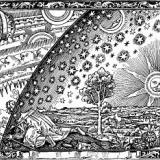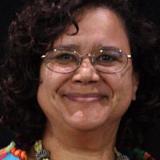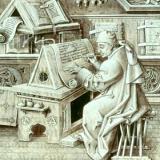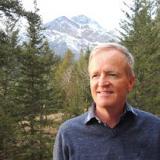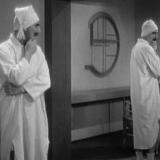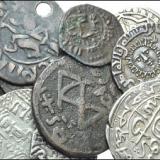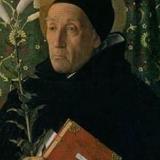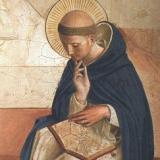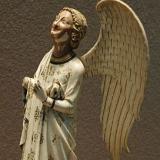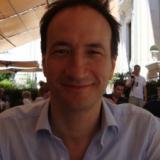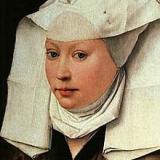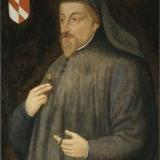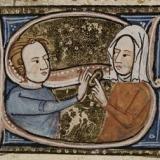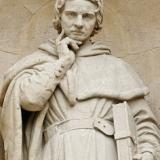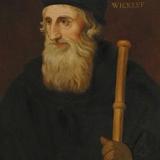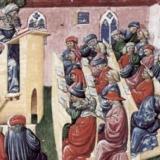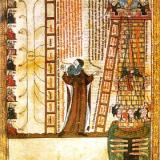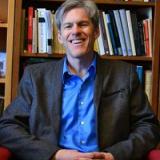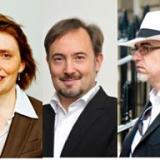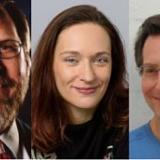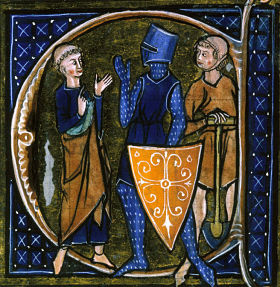Fourteenth Century Philosophy
The final phase of medieval philosophy is hugely underrated. It was a time when university scholasticism achieved exquisite precision and explored philosophical issues that are still with us. Key figures here include William of Ockham, John Buridan, and Nicole Oresme. Philosophy also blossomed outside the university, with vernacular (non-Latin) authors like Dante, Meister Eckhart, and Julian of Norwich – only one of several female thinkers who worked during this period. Political philosophy becomes a major theme in several authors including Ockham and Marsilius of Padua. We will also see advances in the natural sciences and ideas that plant the seeds of the Protestant Reformation. This series features interviews with Susan Brower-Toland, Isabel Davis, Monica Green, Bob Pasnau, Dominik Perler, Martin Pickavé, Tom Pink, Sara Uckelman, and Jack Zupko.
• S. Brown, T. Dewender and T. Kobusch (eds), Philosophical Debates at Paris in the Early Fourteenth Century (Leiden: 2009).
• W.J. Courtenay, Schools and Scholars in Fourteenth Century England (Princeton: 1987).
• W.J. Courtenay, Changing Approaches to Fourteenth-Century Thought (Toronto: 2007).
• W.J. Courtenay, Ockham and Ockhamism: Studies in the Dissemination and Impact of his Thought (Leiden: 2008).
• D.G. Denery, K. Ghosh, and N. Zeeman (eds), Uncertain Knowledge: Scepticism, Relativism and Doubt in the Middle Ages(Turnhout: 2014).
• R. Friedman, Intellectual Traditions at the Medieval University, 2 vols (Leiden: 2013).
• R. Friedman and L.O. Nielsen (eds), The Medieval Heritage in Early Modern Metaphysics and Modal Theory, 1400–1700(Dordrecht: 2005).
• A. Hudson and M. Wilks (eds), From Ockham to Wyclif (Oxford: 1987), 89-107.
• E.A. Moody, Studies in Medieval Philosophy, Science, and Logic (Berkeley: 1975).
• H.A. Oberman, The Harvest of Medieval Theology: Gabriel Biel and Late Medieval Nominalism (Cambridge, MA: 1963).
• J. Verger, Men of Learning at the End of the Middle Ages (Notre Dame: 2000).
• A. Zimmermann (ed.), Antiqui und Moderni: Traditionsbewusstsein und Fortgeschrittenbewusstsein im späten Mittelalter(Berlin: 1974).
There are pages for many thinkers of this period on the online Stanford Encyclopedia of Philosophy.
Posted on
An introduction to philosophy in the 14th century, focusing on two big ideas: nominalism and voluntarism.
Posted on
A conversation with Tom Pink about medieval theories of freedom and action.
Posted on
Marguerite Porete is put to death for her exploration of the love of God, The Mirror of Simple Souls.
Posted on
Italy’s greatest poet Dante Alighieri was also a philosopher, as we learn from his Convivio and of course the Divine Comedy.
This episode is dedicated to John Kleiner, the inspirational teacher with whom I had my first experience reading Dante.
Posted on
Giles of Rome and Dante on the rival claims of the church and secular rulers.
Posted on
In Defender of the Peace, Marsilius of Padua develops new theories of representative government, rights, and ownership.
Posted on
William of Ockham on freedom of action and freedom of thought.
Posted on
Ockham trims away the unnecessary entities posited by other scholastics with his famous Razor principle.
Posted on
How the language of thought relates to spoken and written language, according to William of Ockham.
Posted on
An interview with Susan Brower-Toland covering Ockham's views on cognition, consciousness, and memory.
Posted on
Walter Burley flies the flag for realism against Ockham and other nominalists.
Posted on
Scotus, Ockham, and Bradwardine ask how we can be free if God knows and chooses the things we will do in the future.
Posted on
The scholastics discuss the ambiguity of terms, the nature of logical inference, and logical paradoxes, and play the game of “obligations.”
Posted on
Sara Uckelman soundly defeats Peter in the medieval logical game of "obligations."
Posted on
Bradwardine and other thinkers based at Oxford make breakthroughs in physics by applying mathematics to motion.
Posted on
Ockham, Buridan, Oresme and Francis of Marchia explore cosmology, atomism, and the impetus involved in motion.
Posted on
An interview with Monica Green reveals parallels between medicine and philosophy in the middle ages.
Posted on
The hipster’s choice for favorite scholastic, John Buridan, sets out a nominalist theory of knowledge and language, and explains the workings of free will.
Posted on
Peter speaks to Jack Zupko about John Buridan's secular and parsimonious approach to philosophy.
Posted on
The debate between Nicholas of Autrecourt and John Buridan on whether it is possible to achieve certain knowledge.
Posted on
The medievals were too firm in their beliefs to entertain skeptical worries, right? Don't be so sure, as Peter learns from Dominik Perler.
Posted on
Changing ideas about money, just price, and usury, up to the time of Buridan, Oresme, and Gregory of Rimaini.
Posted on
The scholastic and mystic Meister Eckhart sets out his daring speculations about God and humankind in both Latin and German.
Posted on
Dietrich of Freiberg, Berthold of Moosburg, John Tauler and Henry Suso explore Neoplatonism and mysticism.
Posted on
Be surprised by how many philosophical problems arise in connection with angels (how many can dance on the head of a pin is not one of them).
Posted on
Martin Pickavé returns to the podcast to talk about theories of the emotions in Aquinas, Scotus and Wodeham.
Posted on
Julian of Norwich’s Shewings and the Cloud of Unknowing lay out challenging paths to knowledge of, and union with, God.
Posted on
Philosophical themes in Chaucer’s “Canterbury Tales” and “Troilus and Criseyde,” as well as Langland’s “Piers Plowman.”
Posted on
Medieval attitudes towards homosexuality, sex and chastity, and the status of women. Authors discussed include Aquinas, Catherine of Siena, and Chaucer.
Posted on
Peter is joined by Isabel Davis to discuss marriage, sex and chastity in Chaucer, focusing on the Wife of Bath's speech.
Posted on
Jean Gerson’s role in the political disputes of his day, the spread of lay devotion and affective mysticism, and the debate over the Romance of the Rose initiated by Christine de Pizan.
Posted on
John Wyclif refutes nominalism and inspires the Lollard movement, which anticipated Reformation thought with its critique of the church.
Posted on
New ideas and and new universities in Italy and greater Germany including Vienna and Prague, where Jan Hus carries on the radical ideas of Wyclif.
Posted on
The Renaissance ideals of humanism and universal science flourish already in the medieval period, in the works of Petrarch and Ramon Llull.
Posted on
Bob Pasnau joins Peter to discuss ideas about substance from Aquinas down to the time of Locke, Leibniz and Descartes.
Posted on
Three guests to celebrate 300 episodes! Rachel Barney, Christof Rapp, and Mark Kalderon join Peter to discuss the importance of ancient philosophy for today's philosophers.
Posted on
Peter King, Catarina Dutilh Novaes, and Russ Friedman discuss their approaches to medieval philosophy and its contemporary relevance.




